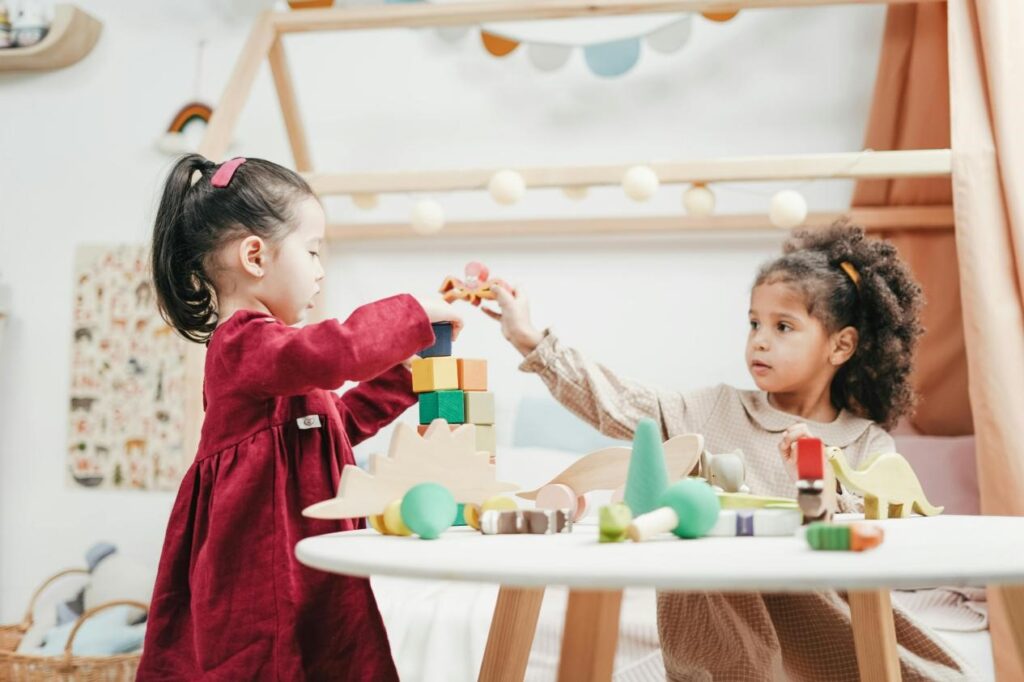
**The Importance of Kids Learning from Playing with Other Kids**
In today’s fast-paced, digital world, it’s easy to overlook the simple, yet profound benefits of children playing together. While screens and structured activities often dominate a child’s day, traditional playtime with peers remains an essential component of their development. But why is playing with other kids so crucial? Let’s explore the reasons why social play is more than just fun—it’s a vital part of a child’s growth and learning.
### 1. **Developing Social Skills**
When children play with others, they learn how to communicate, share, and cooperate. These interactions help them develop important social skills that are crucial for their future relationships. By navigating group dynamics, kids learn to express themselves, listen to others, and resolve conflicts—skills that are fundamental to their emotional and social intelligence.
### 2. **Building Empathy and Emotional Intelligence**
Playing with peers allows children to step into others’ shoes, fostering empathy. Whether it’s comforting a friend who has fallen or sharing a toy with someone who didn’t get one, these small acts of kindness during play teach children to recognize and respond to the emotions of others. This not only helps in forming strong friendships but also lays the foundation for emotional intelligence, which is key to personal and professional success later in life.
### 3. **Enhancing Creativity and Imagination**
Group play often involves role-playing, storytelling, and imaginative games that allow children to explore different scenarios and outcomes. When kids create worlds together, they learn to think creatively and adapt to new ideas. This imaginative play is not only a source of joy but also a powerful tool for cognitive development, as it encourages problem-solving and critical thinking.
### 4. **Learning Teamwork and Collaboration**
In a group, children must often work together to achieve a common goal, whether it’s building a sandcastle or winning a game. These collaborative efforts teach kids the value of teamwork and how to combine their strengths with others’ to succeed. Understanding how to work as part of a team is a skill that will serve them well throughout their lives, in school, work, and beyond.
### 5. **Fostering Independence and Confidence**
While playing with others, children learn to make decisions, take on leadership roles, and handle responsibilities within the group. These experiences build confidence and a sense of independence, as kids realize they can contribute to and influence the group’s activities. They also learn to assert themselves and stand up for their ideas, which is crucial for their self-esteem.
### 6. **Physical Development and Health**
Active play with peers often involves running, jumping, and other physical activities that are essential for a child’s physical development. Playing together encourages children to be active, improving their motor skills, coordination, and overall health. Moreover, physical play can reduce stress and improve mood, leading to happier, healthier kids.
### 7. **Learning through Fun**
Perhaps the most important aspect of playing with others is that it’s fun! Kids naturally learn better when they’re engaged and enjoying themselves. Play provides a natural, enjoyable way for children to explore the world, learn new skills, and make lifelong memories. It’s a reminder that learning doesn’t always have to be serious or structured—sometimes, the best lessons are learned through laughter and play.
### Conclusion
In a world where academic achievements and extracurricular activities often take center stage, it’s essential to remember the value of simple, unstructured play with peers. Playing with other kids is not just a way for children to pass the time—it’s a critical part of their development. Through play, they learn social skills, empathy, creativity, teamwork, independence, and physical health, all while having fun. So, let’s encourage more playdates, group activities, and free playtime, because the lessons learned on the playground are some of the most important lessons of all.

